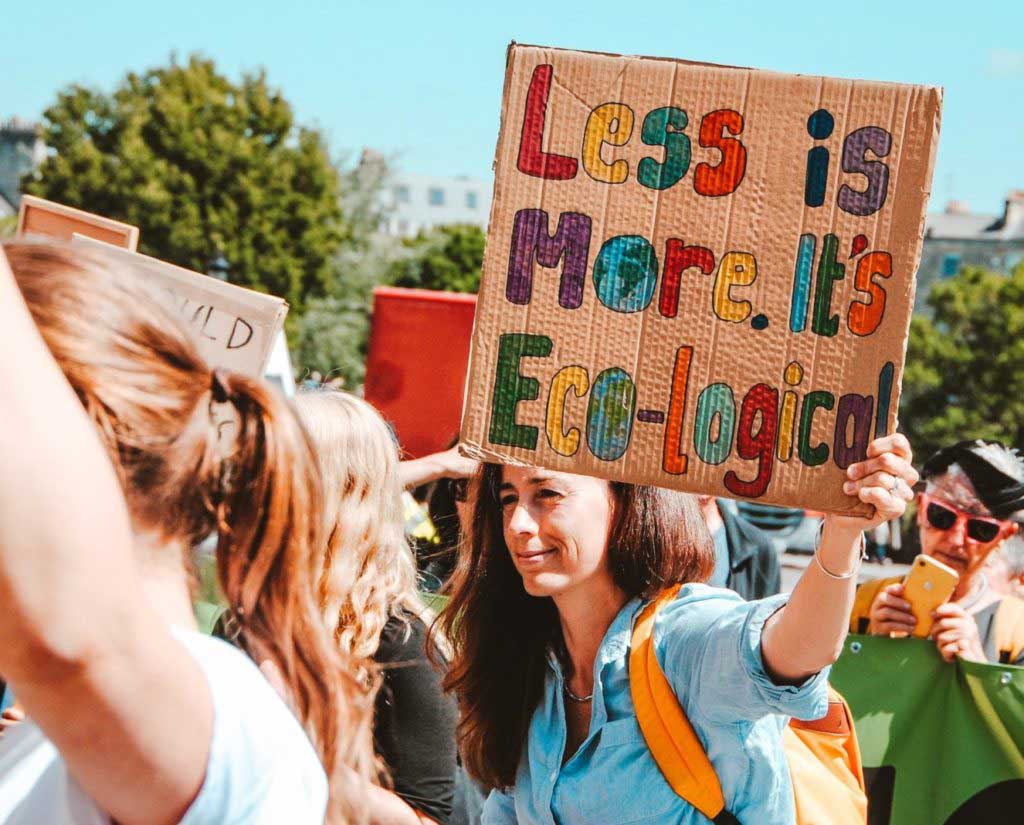The current global crisis associated with the coronavirus pandemic is, willy-nilly, spilling over into all areas of our lives. Whether it's the area of physical and mental health, interpersonal relationships, economics, politics or even ecology and sustainability . In the current situation, it goes without saying that our attention is primarily focused on eradicating the pandemic and maintaining our health. The environment is thus relegated to the back burner. However, he should not be forgotten even in this difficult time. What are the negative, but also the positive, effects of the "corocrisis" on the environment? And what can we do to live sustainably during and after the coronavirus crisis ?
Positive or negative impact?
The atmosphere and the entire planet are now significantly relieved. Globally, CO2 emissions are reduced thanks to limited air and road transport, which is directly related to lower demand for oil and other fossil fuels. Global consumption has also decreased, resulting in lower demand and production . People generally invest their money only in what they currently need, live more sustainably and save "for worse times".
At first glance, it may seem that the coronavirus crisis will have a positive impact on the environment. But is that really the case? Let's look at it from a different perspective.
You must have noticed that the topic of the environment has now gradually disappeared both from the media and from national and international efforts. Understandably, governments are intensely focused on adopting various measures to slow the spread of the pandemic and ensure functioning health care. After the end of the crisis, they will focus on mitigating the effects of the economic crisis and taking measures for the future. The topic of the climate crisis will thus continue to be relegated to the background.
Another problem that arises in connection with the pandemic is the increasing amount of disposable waste , whether it is medical devices, disposable masks and respirators, plastic packaging, which is starting to return to supermarket shelves as part of hygiene measures, or disposable cups and boxes from restaurant supplies. It is understandable that these are important hygiene measures , but they will result in a large amount of produced waste and in the future it will be more difficult to go back to what we so honestly fought for.
And what can we do to continue to live sustainably during the coronavirus crisis and above all after it?
The ecological crisis is still here, although not enough attention is now being paid to it. Let's not throw away all the previous habits related to a sustainable lifestyle that we have built up. Yes, hygiene measures are now in the first place, but we can still behave as gently as possible.
PROTECTION:
- “ My mask protects you, your mask protects me. "Having a protective mask when moving outside the home is a necessity these days. However, instead of the disposable ones that need to be thrown away after each use, you can sew a reusable mask . You can thus breathe new life into those old fabrics or T-shirts that you keep at home and at the same time protect the environment . It is enough to boil, dry and iron it after each use, and the mask is ready for the next use.

BUYING:
- You can still use reusable bags for grocery shopping - just clean them regularly. You can boil canvas bags after each use.
- Only stock up on food that you are able to consume at a given time. Place food that has a limited use-by date in the refrigerator in a visible place at the front.
- Don't buy bottled water! If you are used to drinking tap water, you can continue to do so without any problems. For a better drinking experience, use GoodFilter activated carbon for natural tap water purification .
- Be careful when ordering online . A lot of free time at home tempts us to sit down on the Internet and order various goods that we believe we need. But let's ask ourselves the question: "Do I really need this?" Is there a greener alternative?” Support companies that offer a variety of sustainable, ecological and reusable products.
TRANSPORT:
- Rides a bike. If you don't have far to work, cycling is a great solution. Not only will you avoid contact with a large number of people in public transport, but you will also be in the fresh air and reduce your petrol consumption.
We are convinced that "everything bad is good for something". Maybe this crisis should teach us greater humility and gratitude for what we have and learn to be content with it. It will allow us to slow down, think about what we really need and not buy unnecessary things. It teaches us to buy food more thoughtfully and to plan our meals in advance. And above all, to value interpersonal relationships and the functions of the family and community in which we live. We believe that each of us can decide whether this crisis will have a negative or positive impact on him in the long term. We wish you to get the most out of it yourself. :)
With love
Terka, Johan & GoodWays team






